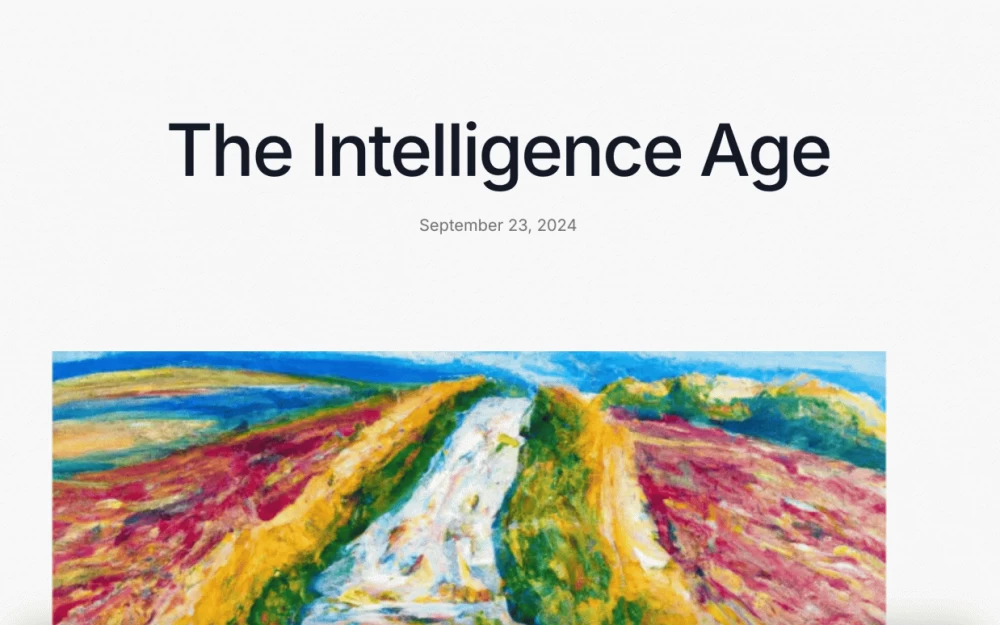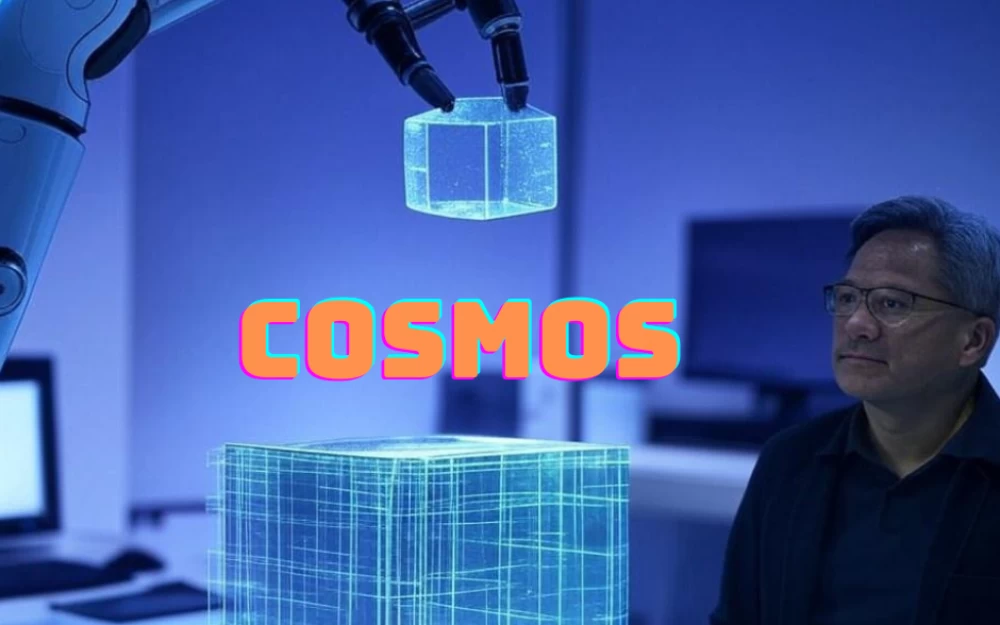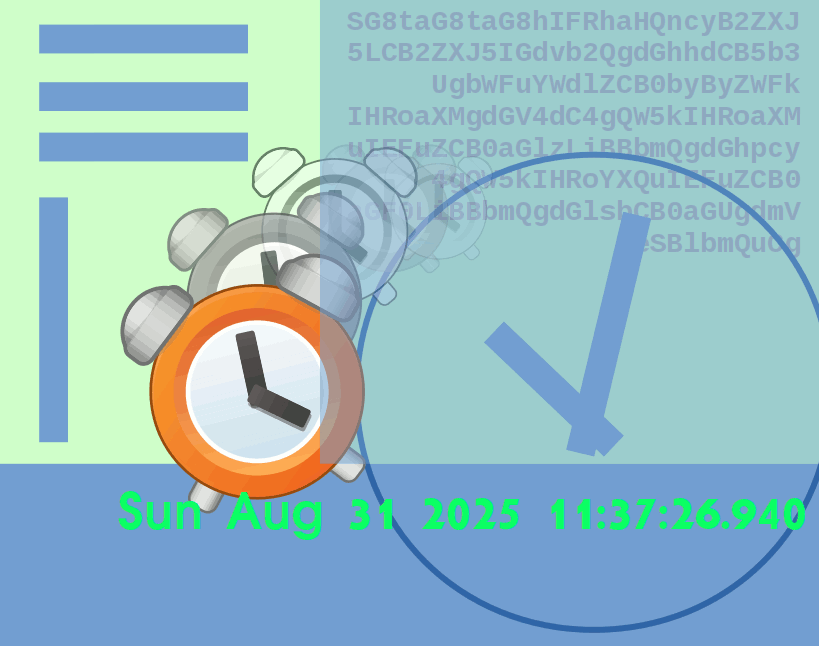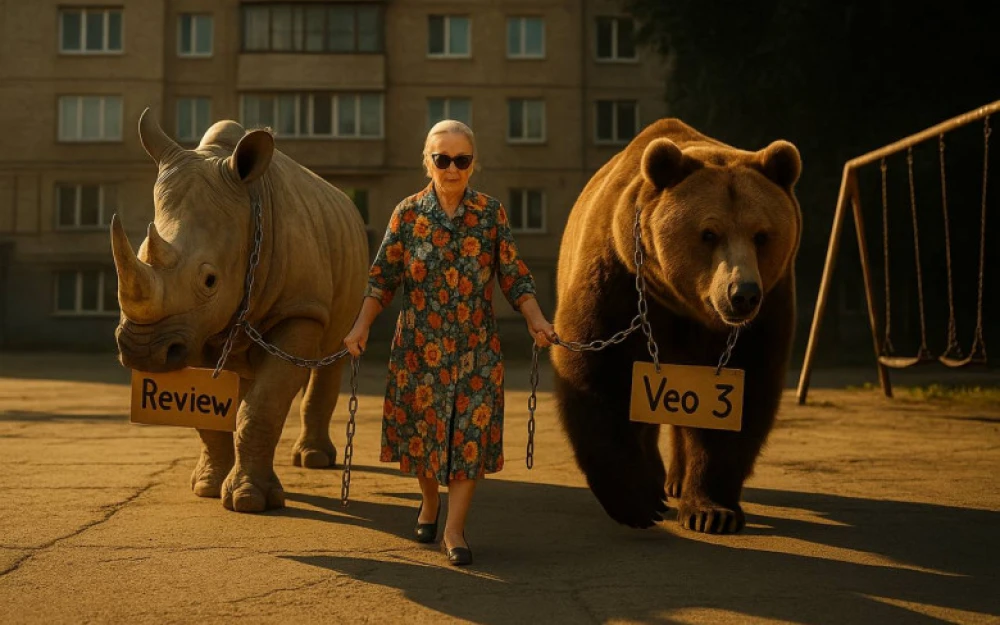- AI
- A
The Intelligence Age. Translation of Sam Altman's essay
Yesterday, Sam Altman published a note on his website titled "The Intelligence Age," in which the CEO of OpenAI discusses the future of artificial intelligence and the new economic era associated with it.
Disclaimer: this is a free translation of Sam Altman's essay, which he published on his website. The translation was prepared by the editorial staff of "Technocracy". To not miss the announcement of new materials, subscribe to "Voice of Technocracy" — we regularly talk about news about AI, LLM, and RAG, as well as share useful must-reads and current events.
Discuss the pilot or ask a question about LLM here.
In the coming decades, we will be able to do things that our grandparents would have considered magic.
This is not a new phenomenon, but the pace of its development will increase. Over time, people have become significantly more capable; already we can do things that our predecessors considered impossible.
We have become more capable not because of genetic changes, but because the infrastructure of society is much smarter and more capable than each of us; in a sense, society itself is a form of advanced intelligence. Our grandparents - and the generations before them - created and achieved great accomplishments. They contributed to the development of human progress, which we all benefit from. AI will give people the tools to solve complex problems and help us add new supports to these scaffolds that we could not have imagined on our own. The story of progress will continue, and our children will be able to do things that we cannot.
This will not happen immediately, but soon we will be able to work with artificial intelligence that will help us achieve much more than we could achieve without it. Ultimately, each of us will have a personal team of artificial intelligence, consisting of virtual experts in various fields, who will work together to create virtually everything we can imagine. Our children will have virtual tutors who will be able to give individual lessons on any subject, in any language, and at the pace they need. We can imagine similar ideas for improving healthcare, the ability to create any software that can only be imagined, and much more.
Thanks to these new capabilities, we will be able to achieve universal prosperity to a degree that seems unthinkable today; in the future, everyone's life can become better than it is now. Prosperity itself will not necessarily make people happy - there are many unhappy rich people - but it will significantly improve the lives of people around the world.
Here is one of the possible narrow views of human history: after millennia of complex scientific discoveries and technological progress, we figured out how to melt sand, add impurities to it, decompose it with amazing precision on an extraordinarily tiny scale into computer chips, pass energy through them, and ultimately get systems capable of creating increasingly capable artificial intelligences.
This may turn out to be the most significant fact in all of history to date. We may get superintelligence in a few thousand days (!); it may take longer, but I am sure we will get there.
How did we find ourselves on the brink of the next leap in prosperity?
In three words: deep learning works.
In 15 words: deep learning works, it becomes predictably better with scale, and we are allocating more resources to it.
That's it: humanity has discovered an algorithm that can truly, genuinely learn any data distribution (or the "rules" underlying any data distribution). The more computation and data, the better it helps people solve complex problems. No matter how much time I spend thinking about it, I could never grasp how important this is.
We still have many details to figure out, but focusing on any specific task is a mistake. Deep learning works, and we will solve the remaining problems. There is much to be said about what might happen next, but the main thing is that AI will get better with scale, and this will lead to significant improvements in people's lives around the world.
AI models will soon become autonomous personal assistants that will perform specific tasks on our behalf, such as coordinating medical care on your behalf. At some point, AI systems will become so good that they will help us create more advanced next-generation systems and achieve scientific progress worldwide.
Technology has brought us from the Stone Age to the Agricultural Age, and then to the Industrial Age. From here, the path to the Age of Intelligence is paved with computing, energy, and human will.
If we want AI to be in the hands of as many people as possible, we need to reduce the cost of computing and make it accessible (which requires a lot of energy and chips). If we do not create sufficient infrastructure, AI will become a very limited resource, over which wars will be fought and which will become primarily a tool for the wealthy.
We must act wisely but resolutely. The advent of the Age of Intelligence is a fateful event with very complex and extremely high stakes. It will not be an entirely positive story, but the positives are so immense that we must figure out how to manage the risks we face, for ourselves and for the future.
I believe that the future will be so bright that no one will be able to do it justice by trying to write about it now; the defining characteristic of the Age of Intelligence will be mass prosperity.
Although it will happen gradually, stunning achievements - climate improvement, space colonization, and the discovery of all physics - will eventually become commonplace. With nearly limitless intelligence and abundant energy - the ability to generate great ideas and bring them to life - we will be able to accomplish a great deal.
As we have already seen with other technologies, there will be downsides, and we need to start working now to maximize the benefits of AI and minimize its harm. For example, we expect that in the coming years this technology may cause significant changes in labor markets (both favorable and unfavorable), but most jobs will undergo changes more slowly than most people think, and I am not afraid that we will run out of time to work (even if today they do not look like "real work"). People have an innate desire to create and be useful to each other, and AI will allow us to enhance our own abilities like never before. As a society, we will return to an expanding world and be able to focus again on positive-sum games.
Many of the professions we engage in today would seem like a trivial waste of time to people a few hundred years ago, but no one looks back regretting not becoming a lamplighter. If a lamplighter could see today's world, he would think that the prosperity around him is simply unthinkable. And if we could fast forward a hundred years, the prosperity around us would seem just as unimaginable.









Write comment